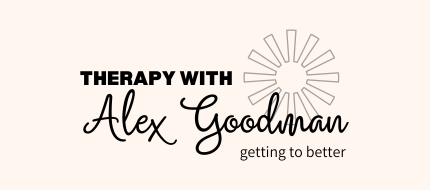Being Diagnosed with ADHD as an Adult: What to Know and How Therapy Can Help
Attention Deficit Hyperactivity Disorder (ADHD) is often thought of as a mental health diagnosis that impacts kids and is diagnosed when someone is in childhood. However, while an ADHD diagnosis requires that symptoms be present before the age of 12, many people, particularly women, will not receive an ADHD diagnosis until adulthood.
Receiving an ADHD diagnosis in adulthood can feel strange and isolating, and often prompts questions like, "Why was this not noticed sooner?" or "What do I do at this point?" Additionally, it can be hard to get a clear idea from medical professionals on how exactly your ADHD symptoms may be impacting you, especially as ADHD in adulthood is often diagnosed in conjunction with depressive and/or anxious symptoms.
If you've been diagnosed with ADHD as an adult, it's essential to understand that you're not alone in this journey.
Understanding Adult ADHD
Attention-deficit/hyperactivity disorder (ADHD) is a neurodevelopmental disorder that affects a significant number of individuals worldwide. While most people with ADHD are diagnosed during childhood, receiving an ADHD diagnosis as an adult is not uncommon.
ADHD is characterized by symptoms of inattention, hyperactivity, and impulsivity, which affect an individual’s ability to function appropriately in different settings. A common misconception is that people with ADHD can’t focus. However, those with ADHD struggle to direct where their attention goes. This often leads individuals with ADHD to experience difficulties staying organized in various aspects of their lives, including work, relationships, and personal responsibilities.
The Role of Medication
When I meet with individuals who have recently received an ADHD diagnosis, the conversation usually moves quickly into a discussion about medication. This tends to happen as medication is currently indicated as the most effective treatment for an ADHD diagnosis. However, while medication, especially stimulant medication for ADHD, can be extremely effective, all medications have side effects. Clients, rightly so, are often apprehensive to immediately choose to start taking medication, and the increased prescription of stimulant medication by medical professionals is something to heed. However, it may be helpful to try medication, as a benefit of stimulants is that you will quickly know whether you notice any benefits and if you don’t immediately stop taking it, with no need to taper off.
Yet, while medication can help alleviate symptoms and improve one’s ability to manage daily tasks, medication in and of itself does not address the underlying behaviors and coping strategies needed for long-term management of ADHD.
How Therapy Can Help
Beyond medication, therapy plays a crucial role in managing ADHD symptoms and improving overall quality of life. Here’s how therapy can help:
Cognitive Behavioral Therapy (CBT): CBT can help individuals with ADHD develop coping strategies and organizational skills. It also addresses concurrent anxiety or depression, which often coexists with ADHD. This type of therapy focuses on modifying specific cognitions and behaviors, while helping you develop strategies to deal with challenging situations. CBT can also help you improve your time management, reduce procrastination, and enhance productivity.
Mindfulness-Based Therapy: Mindfulness practices can increase awareness of how ADHD affects daily life. Techniques such as meditation can improve attention and reduce stress.
Supportive Counseling: Counseling provides a safe space to discuss the emotional impact of an ADHD diagnosis. It can help individuals process their feelings and develop a positive outlook on managing ADHD.
Executive Functioning Support: Therapy will also assist you in developing practical strategies for improving organizational skills, time management, and goal setting.
Additional Strategies for Managing ADHD
Lifestyle Adjustments: Regular physical activity, a healthy diet, and adequate sleep can significantly impact the ability to manage ADHD symptoms. Exercise, in particular, has been shown to improve focus and reduce impulsivity and hyperactivity.
Support Groups: Connecting with others who have ADHD can provide a sense of community and understanding. Sharing experiences and strategies can be incredibly validating and helpful.
Educational Resources: Learning more about ADHD through books, online resources, and workshops can empower individuals with knowledge and practical tips to manage symptoms effectively.
Time Management Tools: Utilizing planners, apps, and other organizational tools can help keep track of tasks and deadlines, making daily life more manageable.
Embracing Your Diagnosis
An ADHD diagnosis in adulthood is not a verdict on your abilities or potential. It is an opportunity to better understand yourself and seek appropriate support. With the right treatment plan, whether it includes medication, therapy, lifestyle changes, or a combination of these, you can lead a fulfilling and productive life.
Embrace this journey with an open mind, and don’t hesitate to reach out for help when needed. By doing so, you can turn what initially feels like a daunting diagnosis into a powerful catalyst for personal growth and self-awareness.
Feel like you need additional support? If you’re ready to take the next step in managing your ADHD, consider scheduling a consultation a with me! As a therapist who specializes in ADHD, I offer tailored support and strategies to help you navigate your diagnosis and thrive in your daily life. Don’t wait any longer, start your journey towards a more organized, focused, and fulfilling life today.


